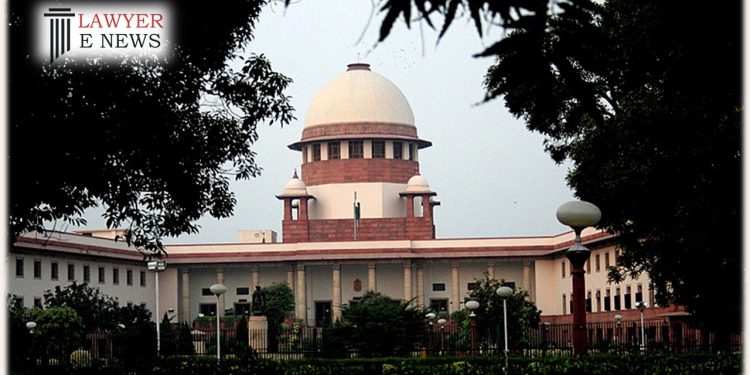Supreme Court Upholds Validity of Withdrawal of Customs Duty Exemption Notification

On May 12, 2023, In a recent judgment, the Supreme Court of India has upheld the validity of the withdrawal of a customs duty exemption notification. The case, titled Union of India & Ors. v. A. B. P. Pvt. Ltd. & Anr., pertained to a challenge against the withdrawal of a customs notification by the Calcutta High Court.
The appellant, Union of India, had withdrawn a customs duty exemption notification that granted a concessional rate of 5% on the import of high-speed cold-set web offset rotary printing machines with a minimum speed of 70,000 copies per hour. The withdrawal was based on an amended notification which restricted the benefit of the concessional rate to a specific type of machine – high-speed cold-set web offset rotary double-width four-plate wide printing machines.
The respondent, A. B. P. Pvt. Ltd., had imported a high-speed cold-set web offset printing machine and claimed exemption from payment of duty under the initial notification. However, owing to the amended notification, the respondent became ineligible for the concessional rate and was liable to pay customs duty at a higher rate.
The respondent challenged the validity of the withdrawal before the Calcutta High Court, which had earlier held the withdrawal invalid. The High Court observed that the withdrawal lacked an intelligible differentia and failed to establish a case for exemption in furtherance of public interest. It further noted that the imported machine was not manufactured in the country and no representation was received from domestic manufacturers questioning the exemption.
The Union of India appealed against the High Court’s decision before the Supreme Court. The appellant argued that the power to grant or modify exemptions falls within the domain of the government and that the withdrawal was justified in light of representations received from domestic manufacturers seeking reconsideration of the concession. The appellant contended that the amended notification was a matter of fiscal policy and served the public interest.
In its judgment, the Supreme Court held that the withdrawal of the exemption notification was valid and in furtherance of public interest. The Court emphasized that the power to grant or withdraw exemptions rests with the executive government and should be exercised in the public interest. It clarified that judicial review in such matters is limited to determining the legality, bona fides, and relevance of the government’s decision. The Court also rejected the application of the principle of promissory estoppel against the government, stating that no vested right is acquired by an assessee in the matter of tax concessions.
Supreme court held that the High Court had erred in conducting a merits review of the economic measure taken by the government. It held that the High Court’s judgment could not be sustained and set it aside. The Supreme Court allowed the appeal, thereby upholding the withdrawal of the customs duty exemption notification.
This judgment by the Supreme Court reinforces the discretionary power of the government to grant or modify exemptions and highlights the importance of exercising such power in the public interest. The decision also clarifies the limited scope of judicial review in matters relating to fiscal policy and tax concessions.
DATE OF DECISION: May 12, 2023
UNION OF INDIA & ORS.VS B. P. PVT. LTD. & ANR.






